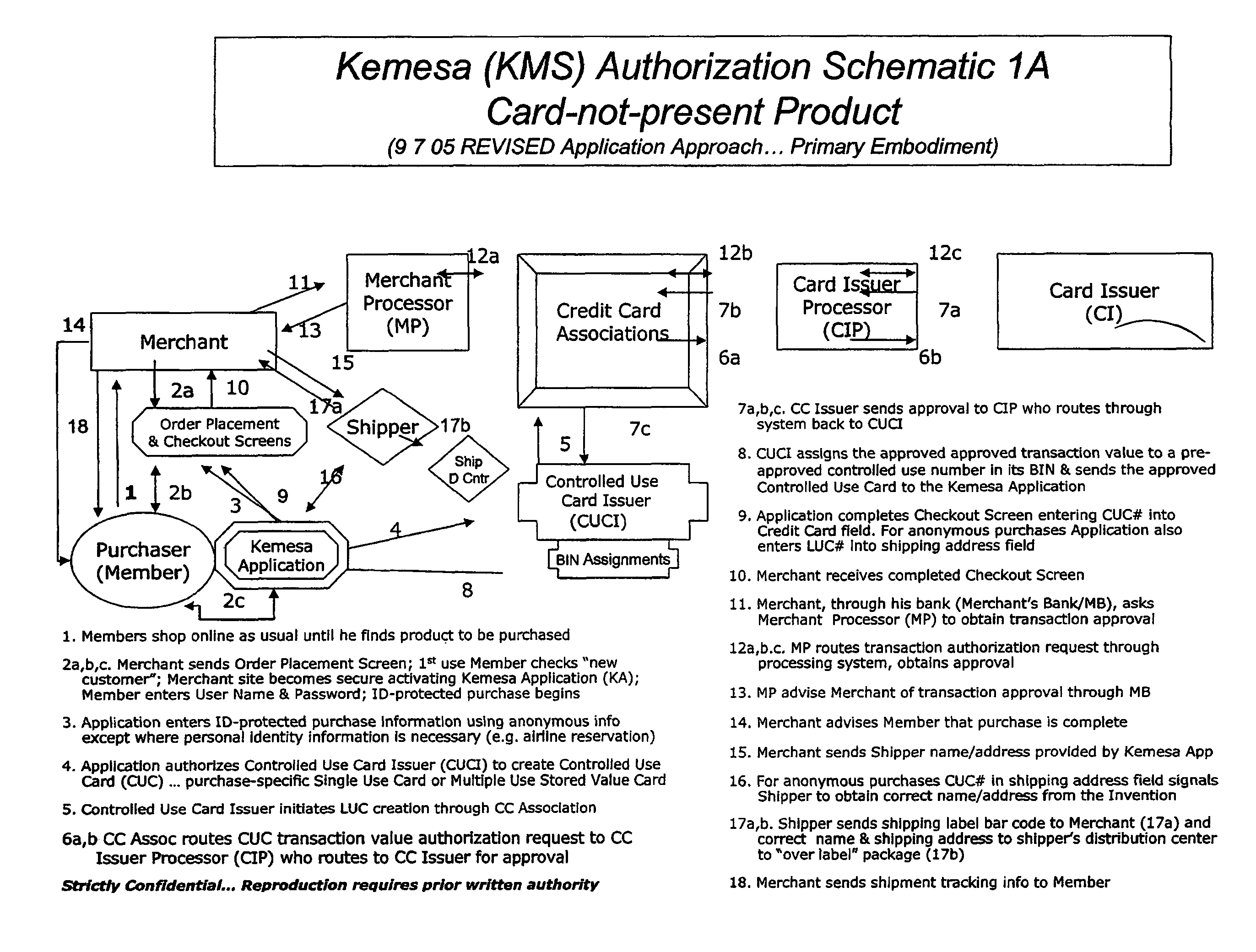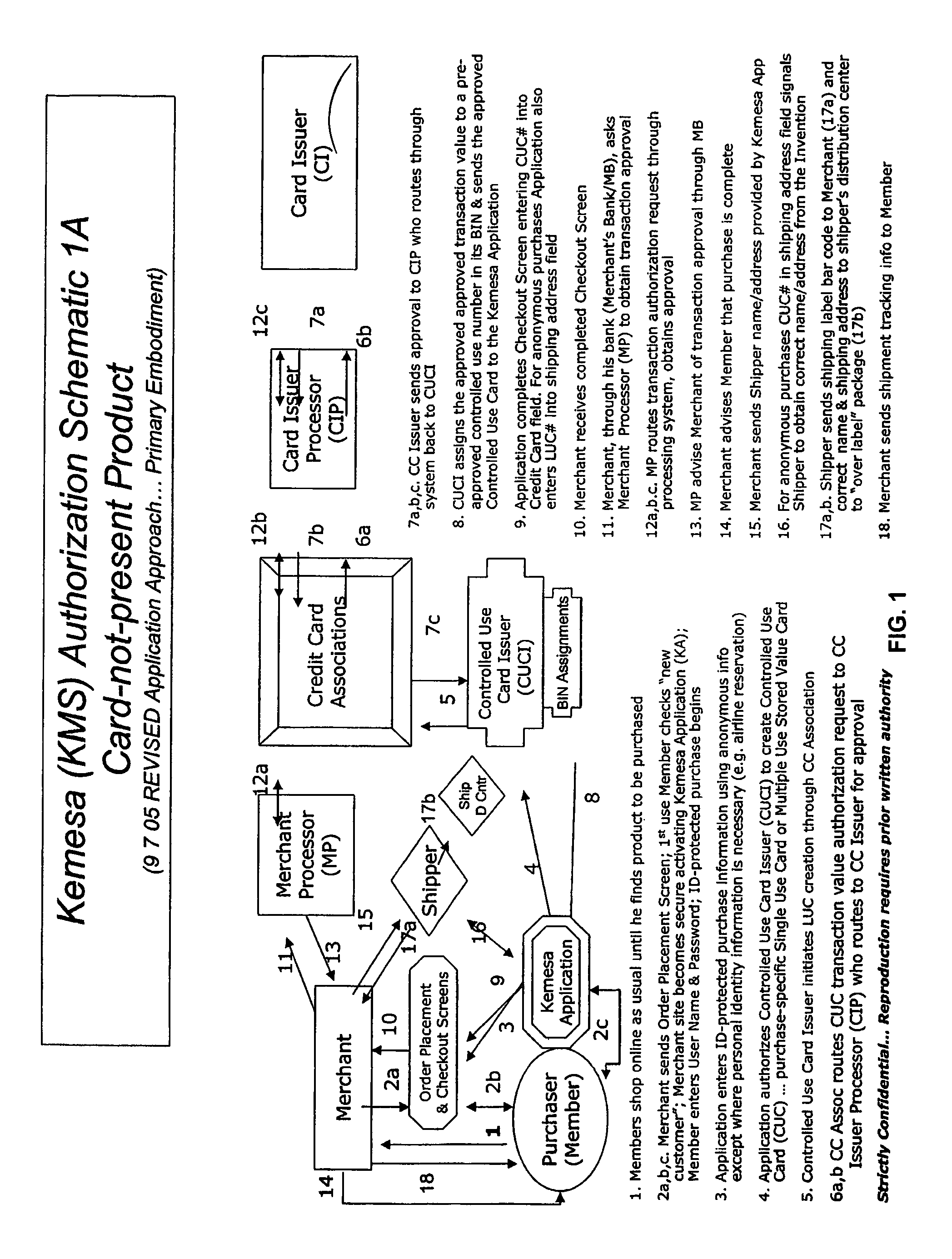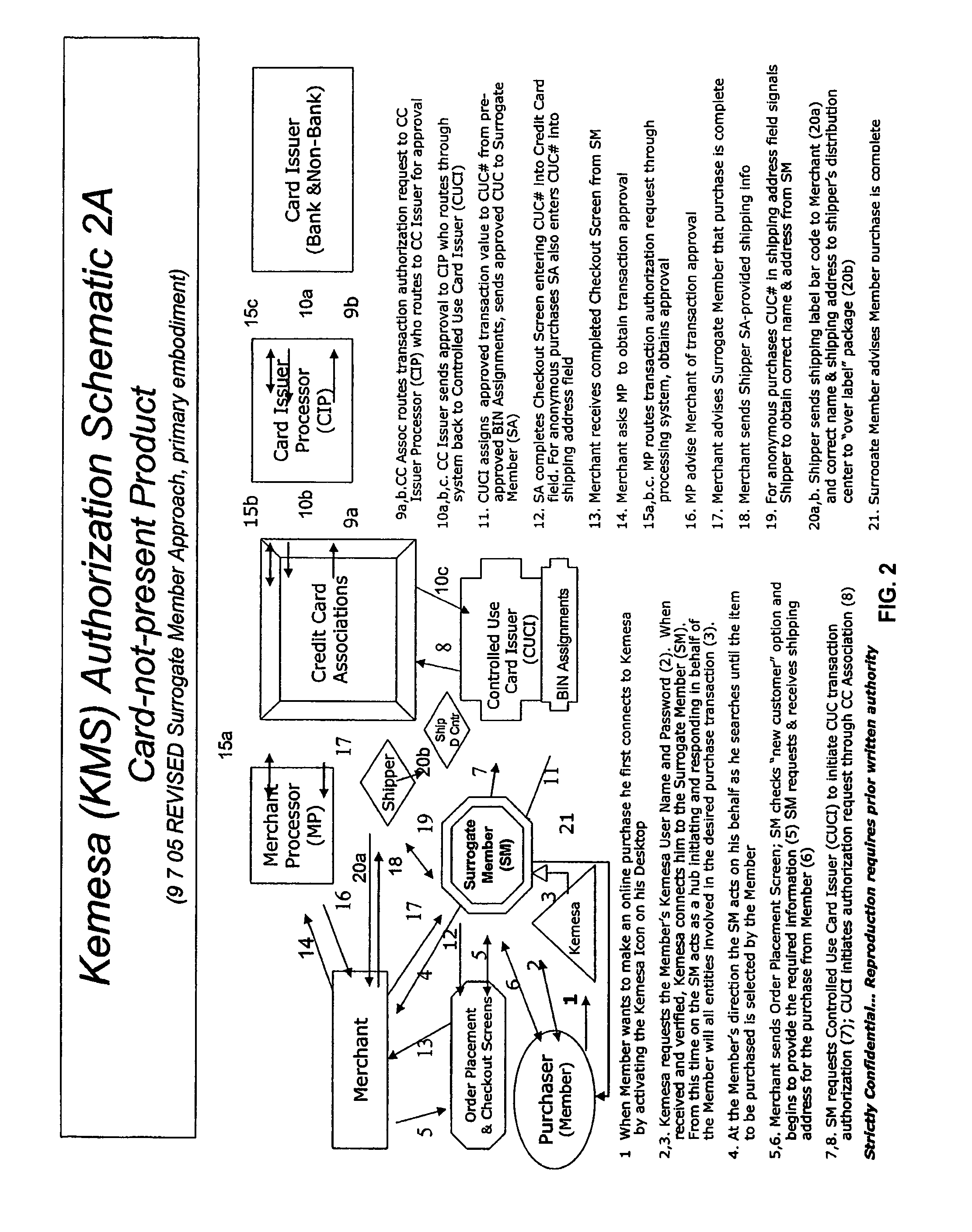Identity theft and fraud protection system and method
a fraud protection and identity theft technology, applied in the field of identity theft protection, can solve the problems of identity theft, becoming increasingly sophisticated and difficult to prevent, and as many as 1 in 6 people now being vulnerable to identity theft, so as to prevent eliminate the theft of a purchaser's personal identity information, and achieve maximum anonymity
- Summary
- Abstract
- Description
- Claims
- Application Information
AI Technical Summary
Problems solved by technology
Method used
Image
Examples
Embodiment Construction
[0056]The invention provides a system and method for preventing personal identity theft when making purchase transactions. The system and method operate to prevent theft of personal identity when conducting online purchase transactions, such as on the Internet, as shown in the embodiments of FIGS. 1 and 2. A further embodiment of the invention provides for protection against theft of personal identity when making offline purchase transactions, such as when purchasing goods at a retail store or services, as schematically shown in FIG. 3. Throughout the description which follows, the invention is also referred to as the “Identity Protection System” or the “System”.
Online (Card-Not-Present) Purchase Transactions
[0057]Referring initially to FIG. 1, a primary embodiment of the invention is shown, wherein identity theft protection is provided during online purchase transactions. A purchaser desiring to use the Identity Protection System to make secure, identity protected purchases via a c...
PUM
 Login to View More
Login to View More Abstract
Description
Claims
Application Information
 Login to View More
Login to View More - R&D
- Intellectual Property
- Life Sciences
- Materials
- Tech Scout
- Unparalleled Data Quality
- Higher Quality Content
- 60% Fewer Hallucinations
Browse by: Latest US Patents, China's latest patents, Technical Efficacy Thesaurus, Application Domain, Technology Topic, Popular Technical Reports.
© 2025 PatSnap. All rights reserved.Legal|Privacy policy|Modern Slavery Act Transparency Statement|Sitemap|About US| Contact US: help@patsnap.com



